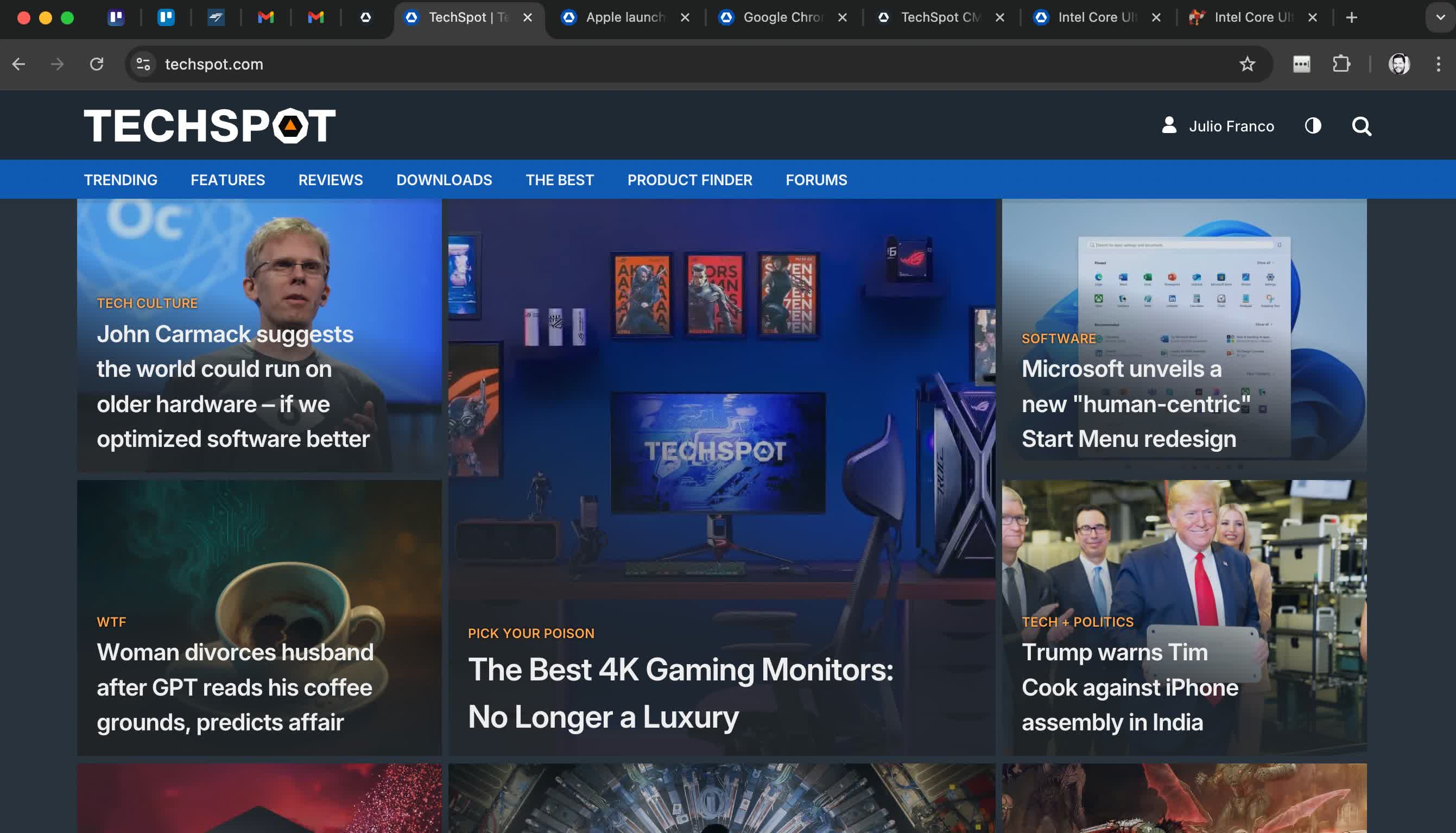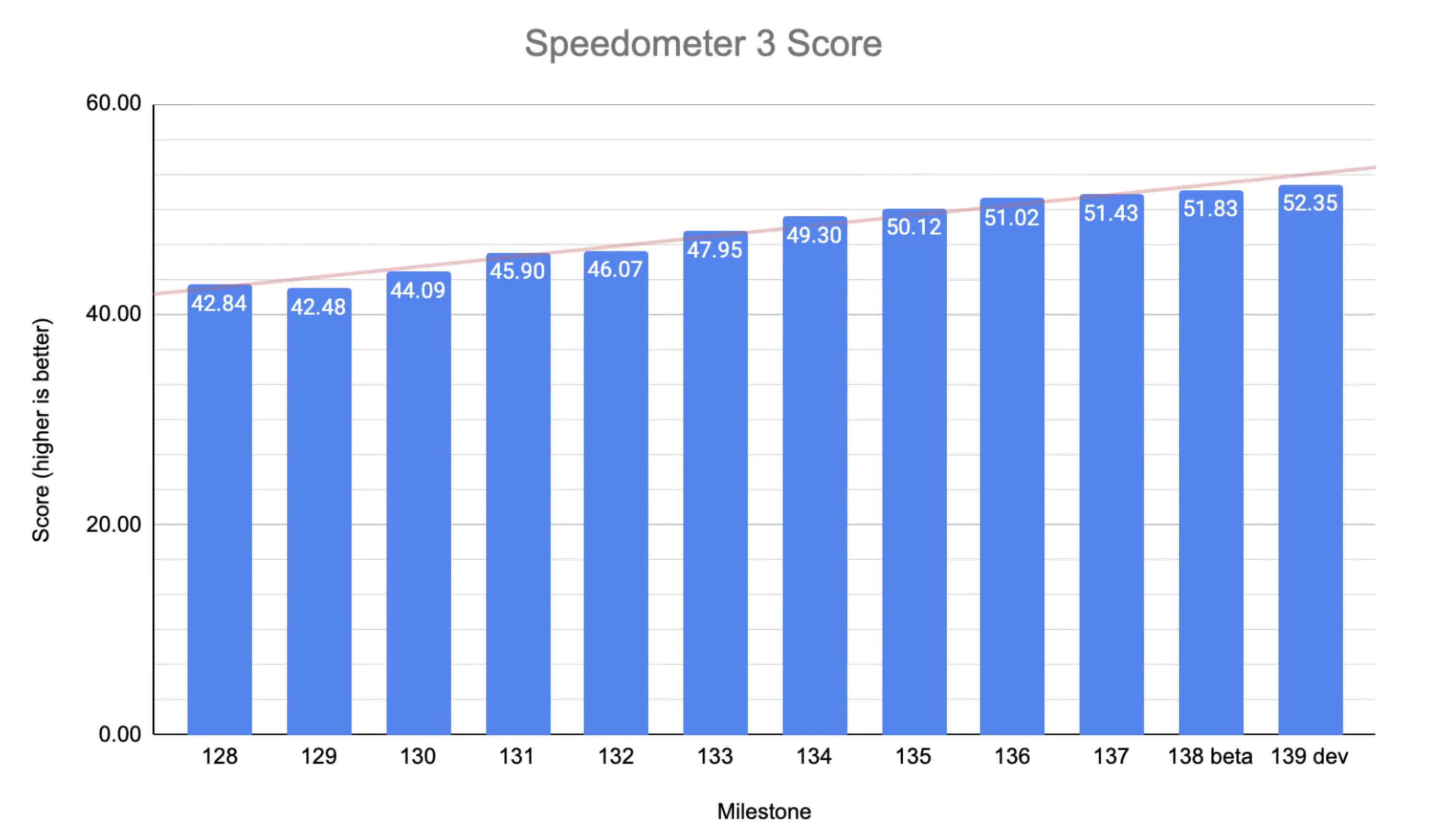Editor's take: In my experience, Chrome has been a decent browser. However, I have long complained about its abuse of my RAM supply. So I'm always optimistic when Google says it has patched it to work faster or more efficiently, but I'm usually left disappointed. So, I always take such news with a grain of salt.

Google recently announced that Chrome is now "faster than ever," achieving its highest score yet on the Speedometer 3.0 benchmark. The search giant claims that the browser's speed has improved by about 10 percent since August 2024.
Google estimates this could save users millions of hours annually waiting for web applications to load or respond. The gains come from a series of optimizations, including improved memory layouts, more efficient string processing with new hashing algorithms, and refinements to Chrome's Blink rendering engine that enhance CSS styling and font rendering.
While these improvements sound promising, they come with a long-standing criticism of Chrome: its reputation as a notorious memory hog.
Despite Google's efforts to reduce resource usage, many users still report high RAM consumption, especially when navigating multiple tabs or using extensions. A Reddit thread, known for unfiltered user feedback, highlights this frustration.
After Google's speed boost last year, one Redditor noted that a single Chrome tab was still consuming up to six gigabytes of RAM, leading to sluggish performance or system slowdowns. These anecdotal accounts suggest Chrome's speed gains don't always translate to better RAM efficiency.
In response, Google has introduced features like Memory Saver and Energy Saver to tame Chrome's appetite for system resources. Designed to cut RAM usage and extend battery life – especially on laptops – these tools mark steps in the right direction. However, TechRadar points out that they don't fully fix the problem.
Many users still find that Chrome strains devices with limited memory, fueling concerns about its ongoing impact on performance and battery drain.
The challenge for Google – and all modern browser developers, really – is striking the right balance between speed and efficiency. As web applications grow more complex, browsers must work harder to deliver quick responsiveness without overwhelming system resources.
While Chrome's latest update improves speed, it highlights the delicate task of balancing boosted performance with resource management, and that act doesn't always tip in the user's favor.
As a result, some users have started exploring other options. Users seeking a lighter browser often prefer alternatives such as Mozilla Firefox and Brave. Known for their lower memory footprints and more aggressive resource management, these browsers can significantly improve performance on devices with limited RAM.
Beyond resource efficiency, both Firefox and Brave emphasize privacy features and customization options that appeal to users seeking more control over their browsing experience. For many, these benefits make switching away from Chrome a practical choice.
In the end, Google's claims of a faster Chrome come with a caveat: speed is only part of the equation. Memory use remains a significant concern for many users. While Chrome's lead in market share is unlikely to falter anytime soon, the real challenge is delivering meaningful performance gains without compromising system efficiency.
Google speeds up Chrome, but its RAM appetite stays about the same

